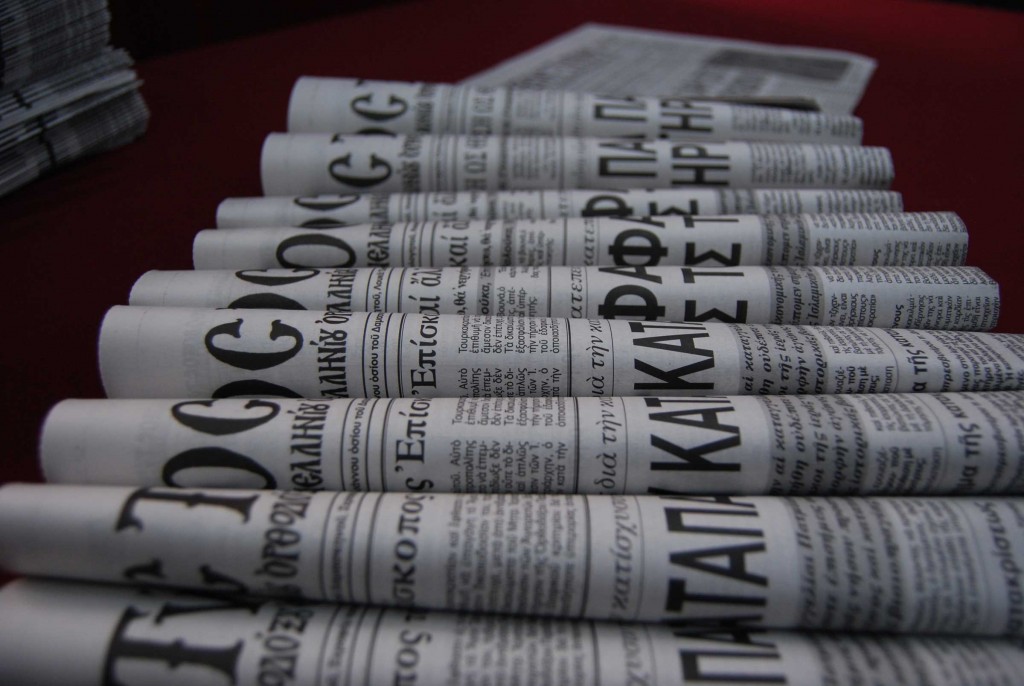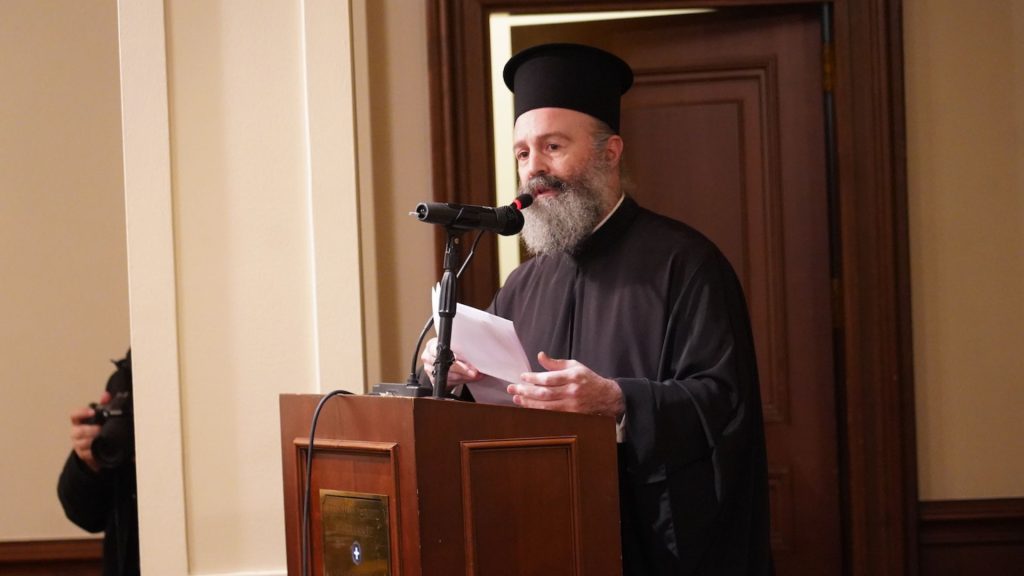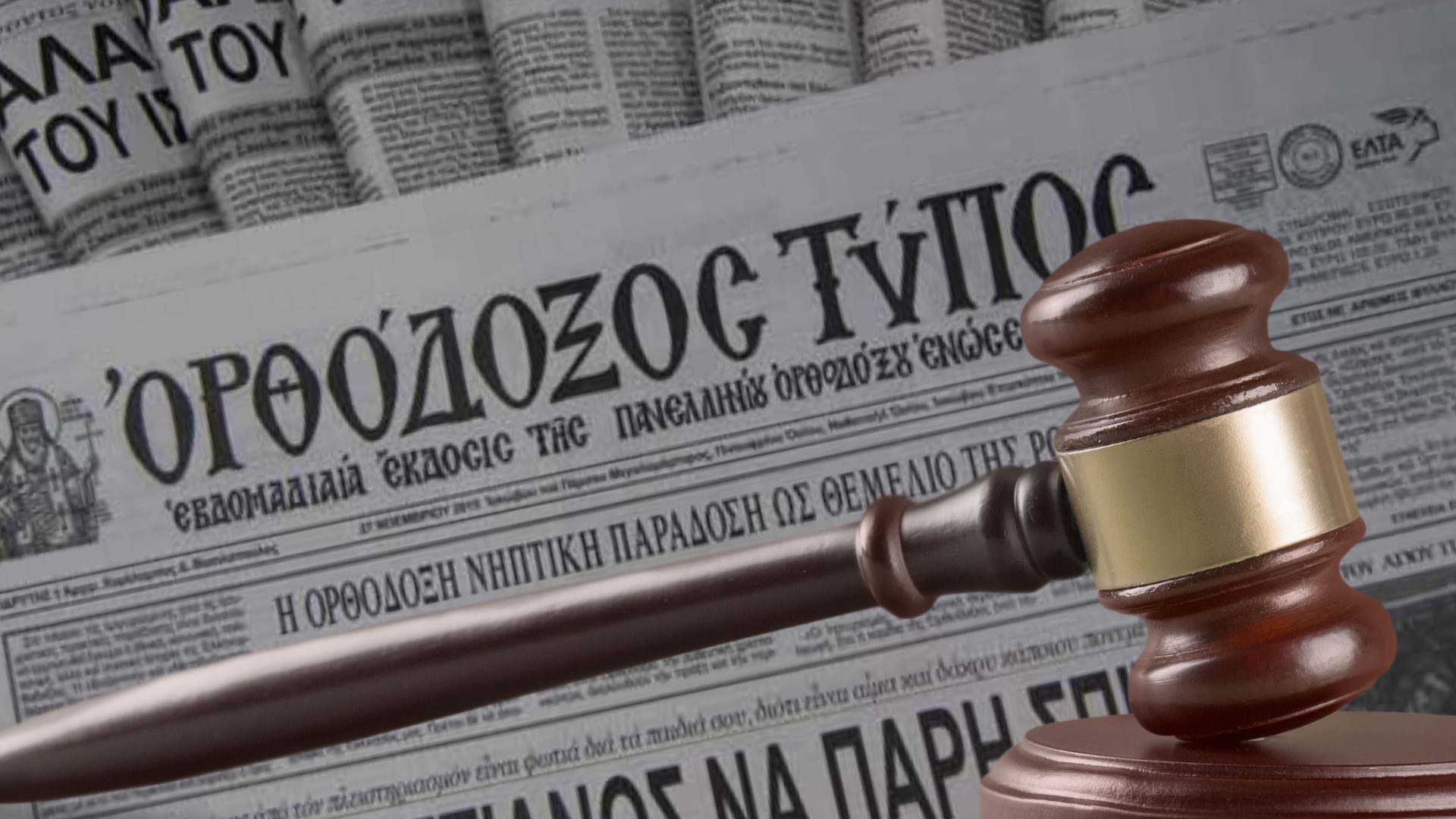By Ilias Karagiannis
The legal dispute in the case (4726/2023) between Archbishop Makarios of Australia and the Greek newspaper, Orthodoxos Typos, was recently finalised in the Greek courts.
Following the final verdict, both Orthodoxos Typos and the Greek Orthodox Archdiocese of Australia released their version of events. In an era where the credibility of media worldwide is being eroded, The Greek Herald has since accessed the court decision and explored the case to present its own factual analysis for readers.
Defamation dispute begins:
The case began with publications by Orthodoxos Typos about four years ago. The reports were directed against Archbishop Makarios and led to the filing of a lawsuit against the newspaper.
In the court of first instance, Orthodoxos Typos was convicted and ordered to pay 10,000 euros in damages. An appeal was filled, which was heard in July 2023 in Greece’s Court of Appeal, with the decision not being handed down until January 2024.
The Greek Herald gained access to the appeal court’s decision.

The content published in both the printed and online versions of Orthodoxos Typos were considered to go beyond what is objectively necessary to protect legitimate interest and constitute an insult to the personality of the plaintiff Archbishop Makarios.
In more detail, the appellate court initially determined that the statements contained in the publications lacked the essential elements of the offence of defamation, since they are based on true facts.
Also included in the same publications are sharp criticisms, which are inherent in the press’s mission, but also anticipated given the plaintiff’s status as Archbishop.
Subsequently, however, the court pointed out that within the publications, there are judgments and expressions that were unnecessary to convey the criticism. These elements are what suggest that Archbishop Makarios was insulted, and his personality was diminished by Orthodoxos Typos.
The court found the use of vulgar and highly derogatory expressions and parallels against Archbishop Makarios – which were not objectively necessary – were chosen deliberately to insult the honour and reputation of the Archbishop. This was evident in the mocking style adopted by the author of the relevant publications. The court said they were not appropriate for an ecclesiastical, non-satirical newspaper whose purpose is the spiritual edification of its readers and not to ridicule and insult.
Moreover, it was determined that the publications, known to an unspecified but substantial audience, predominantly comprising readers of the mentioned newspaper, both in Greece and internationally, insulted the Archbishop’s character.
These publications caused significant distress and anxiety to the Archbishop, prompting him to become wary even of his simple statements, for fear they might be deliberately misinterpreted and used to degrade and insult him.
Considering the circumstances outlined, the court awarded an amount of EUR 5,000 to compensate the non-pecuniary harm endured by the Archbishop due to the aforementioned violation of his character. Archbishop Makarios had initially sought an amount of 260,000 euros.

The payment:
Looking deeper at the topic of financial compensation by the Orthodoxos Typos to Archbishop Makarios, the court of first instance originally awarded 10,000 euros. This decision was overturned by the appeals court and instead awarded the Archbishop 5,000 euros.
“In order to compensate for the non-pecuniary damage suffered by the applicant as a result of the abovementioned infringement of his personality, he must be awarded the sum of 5,000 euros,” the judgment said.
What did the Archbishop gain?
In addition to the 5,000 euros for compensation, Archbishop Makarios, through his legal action, managed to have Orthodoxos Typos remove the articles against him published on 3 February 2020, 14 February 2020, 21 February 2020, 2 March 2020, 13 March 2020, 3 April 2020 and 8 April 2020.
The newspaper was mandated to include a summary of the court’s ruling in the location where the articles were originally published. If it did not publish the decision summary, there was a penalty payment in favour of the applicant of EUR 100 for each day of delay.
Finally, the Orthodoxos Typos was ordered to partially pay Archbishop Makarios’ legal costs of both instances, which were set at 1,000 euros.
What’s next?
This is not the first and won’t be the last defamation case Archbishop Makarios is taking to the courts. The Archbishop has also filed lawsuits in Greece and Australia against:
- The ecclesiastical website Exapsalmos/exapsalmos.gr and its head Sotiris Tzoumas, also for “defamation” and “insult to personality” with a claim for compensation amounting to 250,000 euros.
- The Greek Australian journalist Vasso Morali for posts on her personal Facebook profile with a claim for compensation amounting to one million euros.
- Athens lawyer (and nephew of the late Archbishop Stylianos of Australia) Nikolaos D. Kalliouris, also for “defamation,” with a claim for compensation amounting to 300,000 euros.
- Greek journalist Alkis Morelas for a series of publications about the works Archbishop Makarios and his associates.



